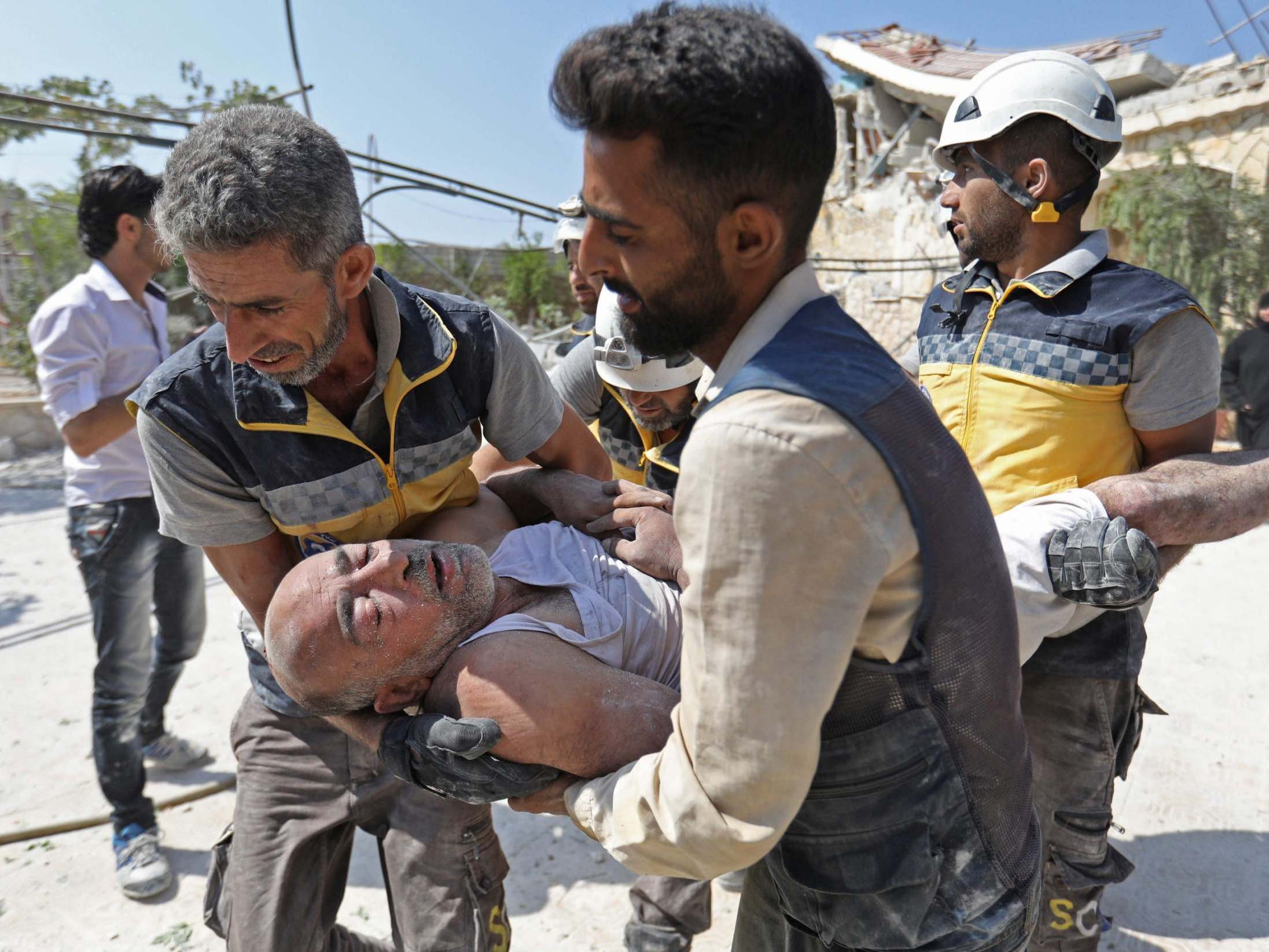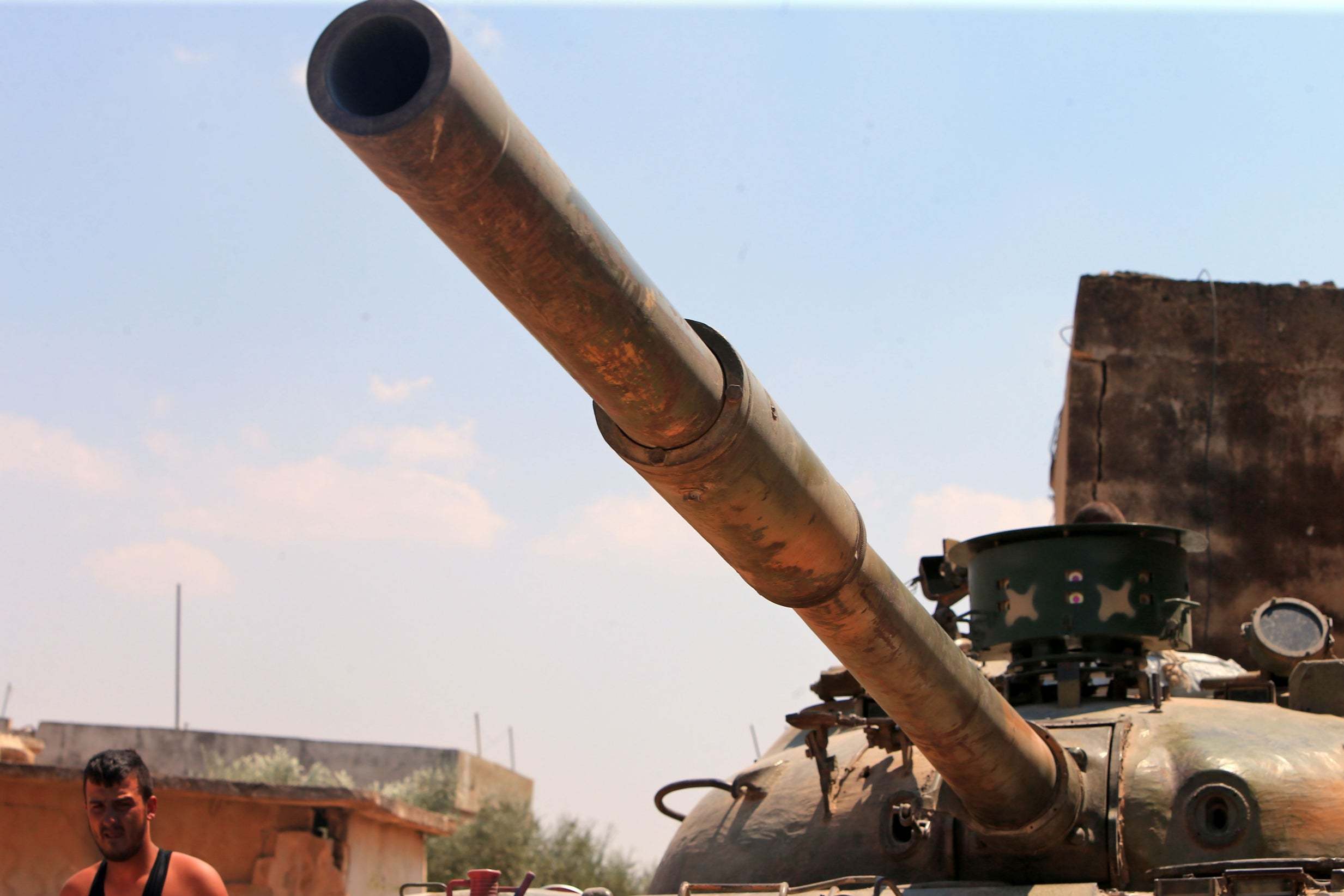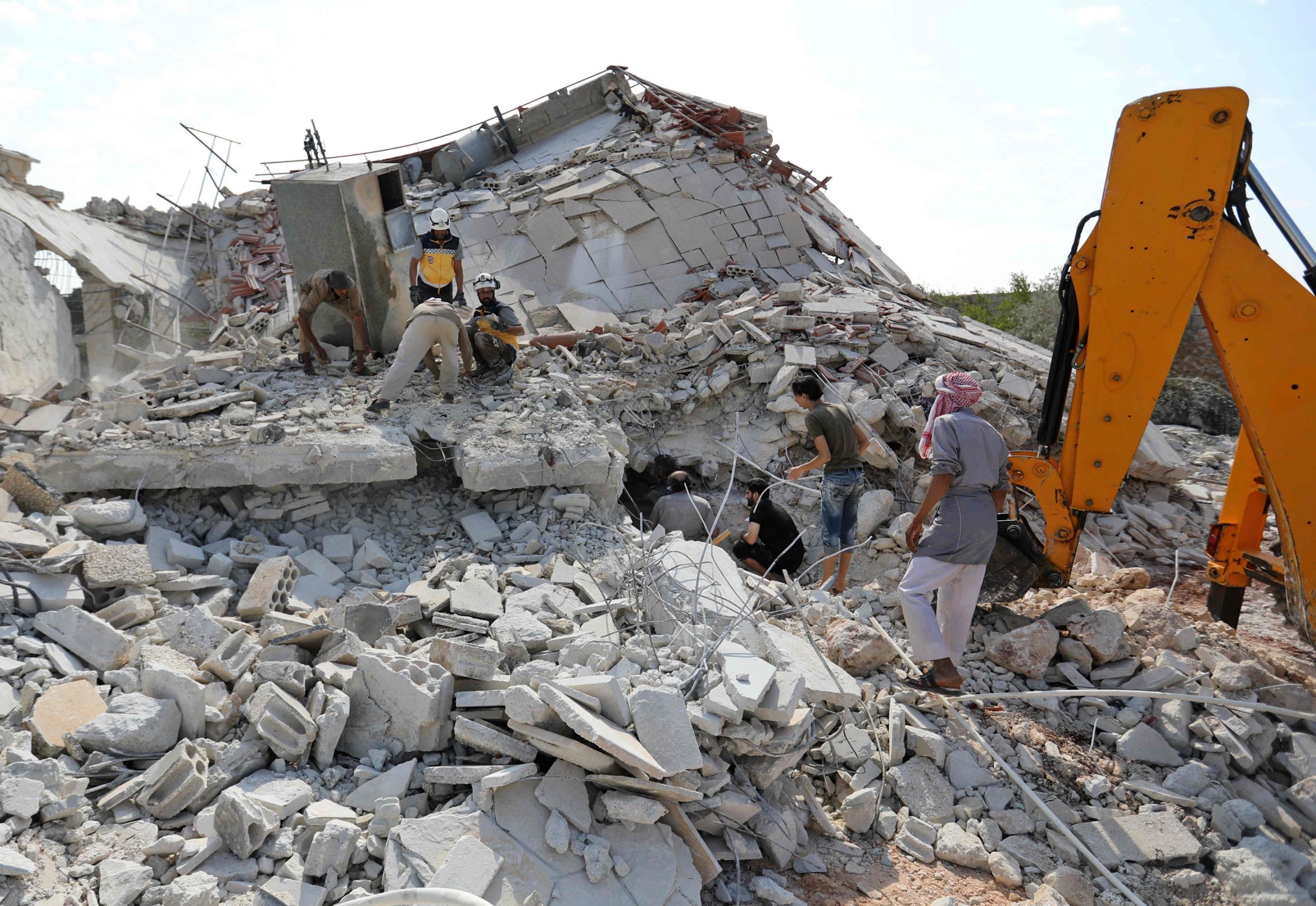Syrian regime set to retake town in key rebel-held area after years of opposition control
Offensive sparks fears of further internal displacement, with more than 540,000 displaced in just three months

Your support helps us to tell the story
From reproductive rights to climate change to Big Tech, The Independent is on the ground when the story is developing. Whether it's investigating the financials of Elon Musk's pro-Trump PAC or producing our latest documentary, 'The A Word', which shines a light on the American women fighting for reproductive rights, we know how important it is to parse out the facts from the messaging.
At such a critical moment in US history, we need reporters on the ground. Your donation allows us to keep sending journalists to speak to both sides of the story.
The Independent is trusted by Americans across the entire political spectrum. And unlike many other quality news outlets, we choose not to lock Americans out of our reporting and analysis with paywalls. We believe quality journalism should be available to everyone, paid for by those who can afford it.
Your support makes all the difference.The Syrian regime looks set to retake a key town in the northwest after rebels announced they were withdrawing and ‘redeploying’ forces further south.
The latest development has furthered fears of a humanitarian catastrophe in the territory, home to some 3 million people – 500,000 of whom have been displaced in the last three months alone.
Hayat Tahrir al-Sham (HTS) – an al-Qaeda linked militant group that holds sway over the vast majority of Idlib – withdrew from Khan Sheikhoun overnight, according to pro-Damascus sources and an organisation that monitors the war.
“Islamic factions and the jihadi groups have withdrawn from Khan Sheikhoun city in the southern countryside of Idlib completely.
“Regime forces and militias loyal to them are now sweeping the city,” said the Syrian Observatory of Human Rights (SOHR), a UK-based war monitor.
A pro-Damascus military source told Reuters that Khan Sheikhoun was under army control after the rebels were caught in a pincer movement and fled.
"There are some pockets and explosive devices, there are a few who refuse to withdraw and want to die," the source said.
Syrian state media reported that government forces had since seized a key highway running through the town.
The insurgents, however, said that fighting continued, with rebels still holding parts of the town.
"After fierce bombardment by the criminal enemy … our fighters have redeployed south of Khan Sheikhoun," a statement on their Telegram channel said.
The Observatory said HTS rebels had withdrawn to a Turkish military position in the town of Morek in Hama province, south of Khan Sheihkoun and the target of an airstrike on Monday.
The rebel-held area spanning across Idlib and Hama provinces remains the final bastion of opposition control and retaking Khan Sheikhoun would be an important gain for President Bashar al-Assad. The town has been in rebel hands since 2014.
Idlib became home to a myriad of opposition fighters when thousands of insurgents and civilians were bussed up to the northwest, after Assad’s forces swept through the country and retook key opposition strongholds.

The Syrian regime stepped up military operations against the northwestern region in late April, pummelling the area with airstrikes that have decimated homes and infrastructure and pushed civilians to the brink.
The US-based Union of Medical Care and Relief Organizations (UOSSM), which supports medical facilities in the northwest, says more than 730 civilians have been killed in that time by government or Russian forces. The UN Office for the Coordination of Humanitarian Affairs has said more than 500 civilians have died in the hostilities.
The area has also seen 40 attacks on health care centres, 29 attacks on water networks, and 50 attacks on schools, according to the Syrian American Medical Society (SAMS).
Rights group are now raising the alarm on the dire conditions for those trapped inside, with international aid groups blocked from accessing the territory by the regime.
“Camps in the area are already overwhelmed with IDPs, and with more than 540,000 displaced in three months,” Mohammed Katoub, Campaign Manager at SAMS, told The Independent.
“This is far beyond the capacity and resources of humanitarian organisations working in the area. International community and UN agencies should respond immediately to the dire, disastrous situation.
“You can’t imagine how women and children could live in such locations.”
For those trapped inside, access to drinking water is becoming increasingly scarce, he warned.

The military campaign on Idlib brings to the fore tensions between Ankara and Damascus.
On Monday, Turkey sent significant numbers of troops and tanks into Syria in what appeared to be a bid to reinforce the town of Khan Sheikhoun.
A Turkish military convoy was then targeted in what rebels sources said was a Syrian government airstrike.
Turkey's defence ministry said the convoy had been sent to ensure the safety of the observation post in Morek, keep open supply routes, and protect civilians after an offensive by the Syrian army in the region.
Syrian state media called the dispatch of the convoy an act of aggression.
Turkey supports a number of rebels in the northwest, keen that they act as a buffer to any Kurdish territorial aspirations along the border. To this aim, Turkey has established a dozen military positions in the area under agreements with Russia.
Ankara is also keen to keep a presence to ensure they can stem the flow of more refugees across the border, being already home to some 3.6 million Syrians.
On Tuesday, Russia said it has military servicemen stationed on the ground in Idlib and “is following the situation there closely”, Interfax news agency cited Foreign Minister Sergei Lavrov as saying.
Negotiations were underway between Turkey and Russia over the withdrawal of the Turkish position, the pro-Damascus source told Reuters. Russia, which has strong ties to both countries, has tried to bring Damascus and Ankara together via a series of talks and agreements brokered in the Black Sea resort of Sochi.
Turkey's Foreign Minister Mevlut Cavusoglu said on Tuesday that Turkey will not move the military observation post in northwest Syria.
Khan Sheikhoun was also the site of a deadly sarin gas attack in 2017, which killed 92 and injured a further 200, prompting US missile strikes against the Syrian government.
An investigation conducted by the United Nations and the Organisation for the Prohibition of Chemical Weapons said the Syrian government was responsible for releasing sarin on the town then. Damascus denies using such weapons.
Join our commenting forum
Join thought-provoking conversations, follow other Independent readers and see their replies
Comments